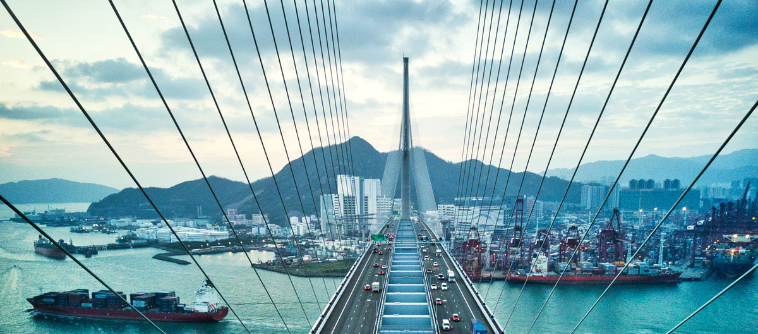In the deteriorating macroeconomic environment in which we are living, with rising inflation at its core, there is a need to restore confidence in the global trading system. An important way to build this is via the dissemination of data and analysis on the sustainability of trade, with a major goal being to shift import patterns, in order to reduce global demand for products that depend on modern-day slavery.
This was the overriding message of panelists Christos Cabolis, Stephen Olson and Chuin Wei Yap during a webinar celebrating the first Hinrich-IMD Sustainable Trade Index. The Index, which saw New Zealand beat 29 other economies to the top, offers 70 pieces of externally sourced data divided into economic, societal, and environmental pillars for 30 economies. It is intended to complement the decision-making process for policymakers and executives and is updated annually.
“We believe that trade and trust are mutual expressions of each other,” said Yap. “But it’s tough times for global trade. People do not trust each other – they are weaponizing one another, and the World Trade Organization (WTO) is falling apart. And yet it’s also a time of great opportunity, especially with COP27 on our minds.”
Why global trade referees are defunct
While some may still believe in restoring a solid, stable, rules-based global trading system, Olson said he felt the prospects for creating this were “dim”.
Blocked by a US embargo on its top court, the WTO has been, in Olson’s words, “almost entirely derailed”. But regardless of that, he said the WTO can no longer be effective as a global trade referee because “the global trade rulebook is out of date”.
“The substantial dysfunction we are seeing today in the global trade system is a real impediment to trade sustainability. Fixing that system has to be an important part of our sustainable trade agenda moving forward.”
World’s biggest economies have a long way to go to wash hands of any ties with modern-day slavery
The worrying role of developed economies – and perhaps even their complicity – in modern-day slavery became a focal point of discussion.
“Labor standards within [large developed economies’] own borders are generally high,” said Olson. “But this was undercut [in the Index] by the fact they import many products at risk of modern-day slavery. In their import patterns, they are stoking global demand for products that depend on modern-day slavery.
“We hope by highlighting this, we can encourage more dialogue on this important issue because it’s not yet getting the attention it deserves.”
Cabolis added how modern-day slavery, which he defined as “offering labor services either under force, fraud, or coercion” was “as with every illegal act, very difficult to measure”.
“We felt it was important to include it, and indeed to show how different governments attempt to battle it,” he said, citing some 48 million people globally as believed to be part of the movement.
The researchers used data from the US Bureau of International Labor Affairs and the Global Slavery Index, and acknowledged how it was notoriously difficult to get hold of – especially in the case of long supply chains.
Cabolis flagged the Indo-Pacific Economic Framework, the details of which were outlined in September, as a recent effort to try to establish a certificate “that will verify what’s going on with the production of goods and services”.
Yap added: “As companies develop their vision – their ability to track their shipments and understand their supply chains; the provenance of what they put into their products – things like this are just going to become more and more important.”
Social media disseminating reality of working conditions
We are seeing the confluence of two broad macrotrends: the discussion on what our values are and how they should impact our trading relationships on the one hand, and social media’s power on the other.
Olson said: “We live in an age where if someone breaks open a cell phone on a factory floor and posts on Facebook a 35-second clip of some labor practices that are egregious, within 24 hours the company at the end of that supply chain might be facing a global boycott. This is unprecedented.”
Olson’s 30+ years of working in trade led him to conclude that today’s ability of people in one part of the world to say ‘Here is the reality of how I make your running shoes’ and then see consumers in developed-world markets put on the pressure their end, meant we were “living in unique times”.
The interactive index is available for download in its entirety here.



